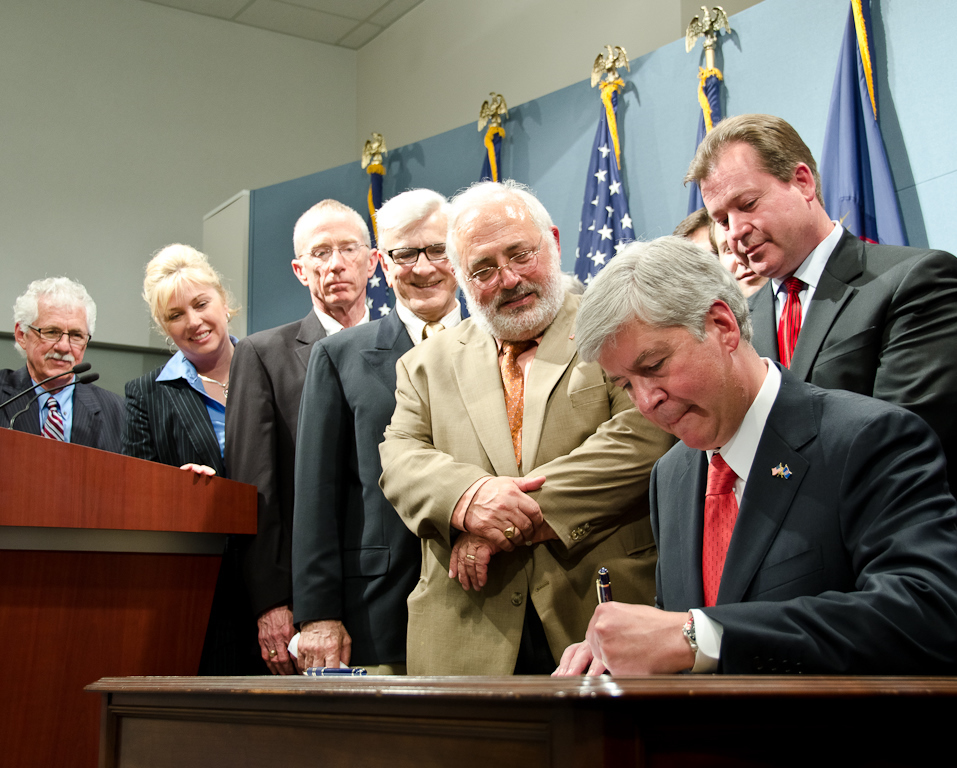A bill to create a state health insurance exchange in Michigan in compliance with President Obama’s health care law was rejected by the state House of Representatives Health Policy Committee.
With the committee’s 5-9 vote on Nov. 30, Michigan now looks likely to form a “partnership” exchange managed primarily by the U.S. Department of Health and Human Services (HHS), a hybrid approach which has remained largely undefined to this point.
“Because the committee could not be assured that a state exchange was the best way to protect Michigan’s citizens, it is understandable why they did not approve the bill,” said House Speaker Jase Bolger, a Republican who had repeatedly expressed support for a state-run exchange.
Republican Governor Rick Snyder has also been a proponent of a state-run exchange.
As House conservatives delayed a vote until the U.S. Supreme Court decision on Obama’s law and then delayed further until the November 2012 election, Snyder’s administration worked to design a partnership exchange through which state officials would coordinate with HHS. Snyder acknowledged in a recent press conference it would likely prove impossible to shift to a state exchange.
“It would be difficult to revisit that whole topic in terms of switching to a state exchange at this point, given where we are in the timeline process,” Snyder said.
Partnership Exchange Effectively Federal
According to Cato Institute Health Policy Director Michael Cannon, the difference between a partnership exchange and a state exchange is significant as regards key portions of Obama’s law, particularly the enforcement of mandates on individuals and employers, as well as credits for the purchase of health insurance. Cannon says federally run exchanges simply cannot function because the statute was not written to support them.
“HHS invented the idea of a ‘partnership’ exchange out of whole cloth, mostly to get states to do some of the heavy lifting involved with creating federal exchanges that HHS is clearly unprepared to do,” Cannon explained, “Since HHS invented ‘partnership’ exchanges, it also unilaterally designated them to be federal exchanges.”
Michigan is likely to join Illinois, Arkansas, North Carolina, and Delaware on the list of “partnership exchange” states, while only 18 states have declared their intent to create state-run exchanges.
“Now that it looks like federal exchanges may not be able to distribute tax credits and subsidies or penalize employers and many individuals, [legal expert] Timothy Jost has urged HHS to flip the designation of ‘partnership’ exchanges from federal—Section 1321—to state-created—Section 1311,” Cannon said. “They may try it, but they will run into problems. Section 1311 clearly says a state must establish an exchange. If a state chose a partnership exchange, that is prima facie evidence that the state chose not to establish an exchange itself.”
“I think employers, individuals, and the states would be able to challenge that designation just as they can challenge the IRS’s illegal tax-credit rule,” Cannon said.





